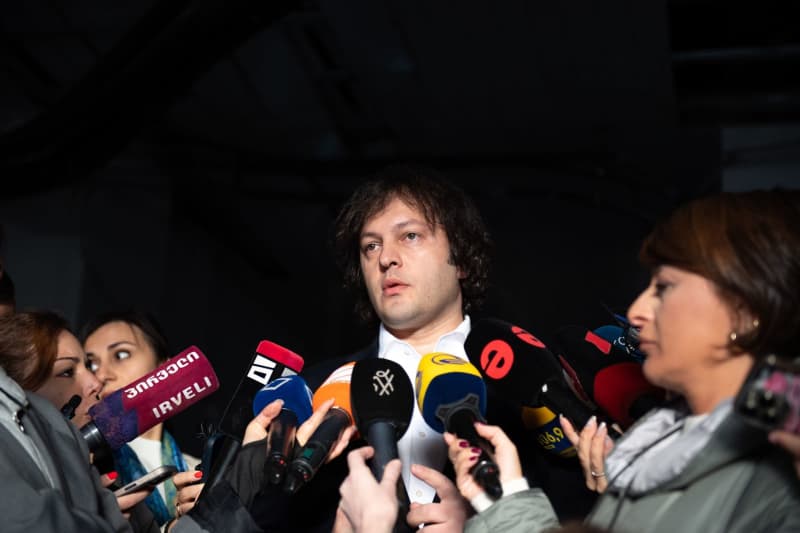The recent parliamentary election in Georgia has sparked significant controversy, as the opposition parties are refusing to accept the preliminary results that favor the ruling national-conservative party, Georgian Dream. According to the election commission, with 70% of the votes counted, Georgian Dream, which advocates for closer ties with Russia, leads with approximately 53% of the vote, securing an absolute majority. In contrast, the Unity electoral alliance, which includes the opposition United National Movement, has reportedly garnered around 10% of the votes, while the Coalition for Change, another opposition group, stands slightly ahead at about 11%. Collectively, four pro-European opposition blocs that surpassed the 5% threshold accounted for roughly 38% of the overall vote.
Opposition leader Tinatin Bokuchkva vocally criticized the election commission, alleging that it acted as a tool for billionaire Bidzina Ivanishvili, the founder and honorary chairman of Georgian Dream, after he celebrated his party’s anticipated victory shortly after polls closed. Bokuchkva’s comments reflect a deep-seated frustration among the opposition, who feel that the election process has been compromised. The Coalition for Change has similarly rejected the election results, with politician Nika Gvaramia describing the situation as a “constitutional coup” and asserting that the elections were rigged using complex technological methods. However, he did not provide specific details to substantiate his claims of falsification.
With voter turnout reported at around 59%, about 3.5 million citizens were eligible to participate in this crucial election. The implications of the results are profound, as a decisive victory for Georgian Dream could jeopardize the nation’s aspirations to join the European Union, especially given the controversial legislation the party has enacted in recent years. The pre-election atmosphere was charged with tension, as pro-Western proponents emphasized the significance of this election for Georgia’s future, indicating a clear divide between the influences of Russia and the West on the country’s political trajectory.
Ivanishvili’s influence remains a contentious point in Georgian politics, with accusations that his business background in Russia has shaped the ruling party’s pro-Russian policies. Observers feared that a strong showing by his party could lead Georgia away from European integration and toward increased collaboration with Russia. Reports of irregular activities during the election day further fueled suspicions of electoral manipulation. In particular, a troubling incident occurred in Marneuli, where an individual was seen illegally depositing multiple ballot papers into a ballot box, prompting the Central Election Commission to void the results from that location, and resulting in criminal investigations initiated by the Ministry of Interior.
The polarized political landscape has necessitated a comprehensive monitoring effort, with numerous non-governmental organizations deploying observers to oversee the voting process. Complaints about the ruling party’s misuse of state resources have previously been noted by electoral law experts, underscoring concerns about the integrity of the elections. The presence of approximately 500 observers from the Organization for Security and Co-operation in Europe (OSCE) adds an additional layer of scrutiny, as these officials are expected to provide an assessment of the election’s fairness and any incidences of mistrust within the electoral process.
As the situation unfolds, the response from international observers and the broader implications for Georgia’s political future will be critical. The refusal of the opposition to accept the results signifies a refusal to concede power and reflects a potential escalation of political tensions. For many in Georgia, the outcome of this election not only shapes the immediate political landscape but also dictates the country’s future orientation, whether it leans toward European institutions or aligns itself more closely with Russian interests. The unfolding narrative surrounding this election will likely carry ramifications for all involved, shaping the identities of both the political parties and the nation as it navigates its complicated geopolitical positioning.

